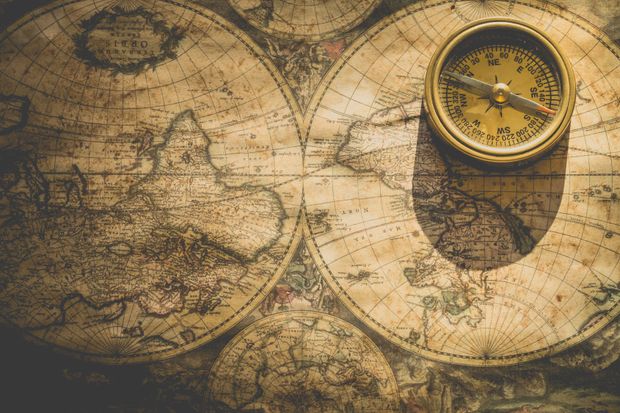You may not have paid the closest attention in geography classes in school. And who can blame you? It's not always easy to recognize why you should study geography right off the bat. Sometimes, even adaptive, engaging web and mobile study apps like Brainscape aren’t enough to sustain motivation to study geography, if you don’t see its relevance to your life.
So: why study geography? The truth is that geography is a highly relevant and important type of knowledge for anyone to have. Here are our top 9 reasons why you should study geography.
[And if you are interested in learning about geography, check out Brainscape's Geography flashcards to learn the most important concepts using our effective spaced repetition system.]
1. Look smart
Let’s be honest: we all care about what other people think of us. That’s why our first important reason for studying geography is that it makes you look smart. Saying "Taiwan" when you mean "Thailand" could really change how people think of you. Knowing basic geography can help you avoid embarrassing moments, impress a date, maybe even land a job.
And if you want to look smart in more topics than just geography, use Brainscape's adaptive Knowledge Rehab flashcards to brush up on your general knowledge. Who knows what you need for your next dinner conversation?
But geography doesn’t just make you look smart. It actually does make you smarter, as our next reasons show.
2. Put the news in context
How are you supposed to understand the news if you don’t know geography? Knowing geography helps put current events in context.
For example, knowing that Hong Kong is a city in southern China can begin to help a person understand why it is politically different from the rest of China and why there were recent protests there: it’s geographically isolated.
3. Chart the course of history
Geography not only puts current events in perspective, it help us understand history. A person can’t understand World War II without understanding the roles of the continental Russian Winter or the English Channel. Geography shapes the course of world history. Want to better understand history? Study geography.
4. Build navigation skills
The most basic skill in navigation is understanding the “lay of the land.” Studying geography helps develop spatial thinking. Those skills could come in handy if you get lost driving around town or in the wilderness!
5. Travel smart
Without a basic sense of geography, it’s impossible to get the most out of travel experiences. If you’re heading to Spain, do you want to see misty mountains, rocky coastlines, or searing-hot cities? These questions will decide whether you head to Torla, Basque Country, or Sevilla.
It'll also help you decide your route: it makes much more sense to hit up Lisbon, then Barcelona, and then Paris if you want to end in Germany (rather than the other way around). Study up to make your next vacation easier.
6. Understand your home
Geography allows you to understand the place where you live. People settle in specific places because of the landscape. For example, cities are almost always built on a river or other reliable water supply. What is the history of the place you live? How has the geography affected the area? These are the questions to ask to gain a deep understanding of your home.
7. Get a grasp on globalization
Globalization has been one of the biggest forces in world history for decades. The saying “it’s a small world” reflects this change: the world is as big as it always was, but it’s just more interconnected than ever. Understanding the changes that have swept the world as a result of this interconnection is impossible without appreciating the geography on which it is taking place.
8. Make sense of different cultures
Human culture is fundamentally place-based: the land determines or influences the cuisine, clothing, architecture, even social relationships. Every aspect of a culture is affected by its geography.
Geography helps you understand and appreciate the incredible diversity of cultures around the world. Like with news, geography puts culture in context. To understand a people, you have to know something about their land.
9. Prepare for the future
Geographic skills guide important decisions every day. From architecture to politics to business, the physical landscape frames the debates happening today that will be in the history books tomorrow.
That’s why you should study geography. And remember that for a quick primer, check out Brainscape's adaptive web & mobile Geography flashcards . They're a fun, easy-to-use web/iOS app built around expert-curated flashcards that quiz you on countries, states, capitals, and more. You can use it on a phone, tablet, or on the web, and you can track your learning over time and even study with friends.
